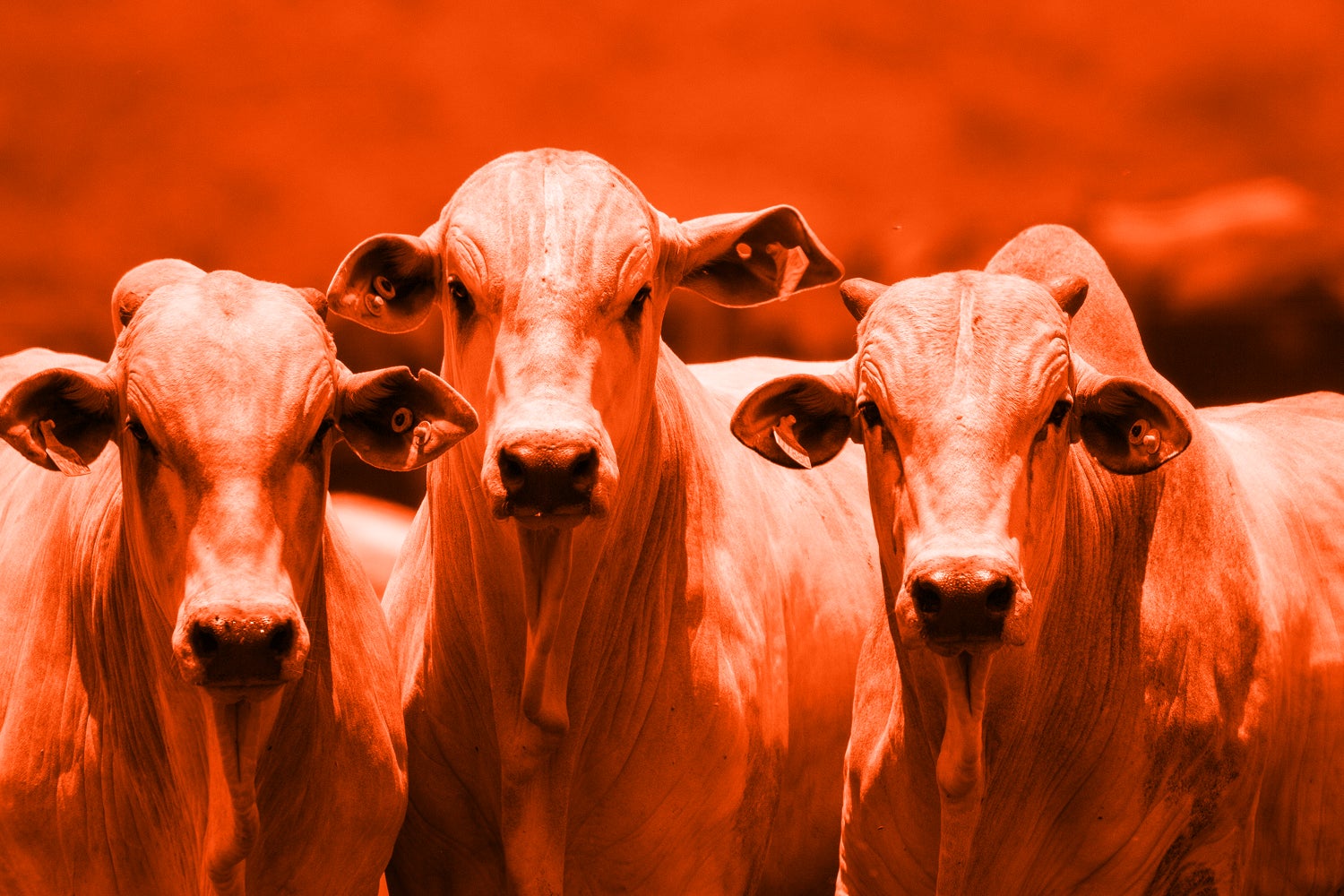The meat industry puts its thumb on climate policy
Folks have got major beef with the COP30 climate conference currently taking place in Belém, Brazil, a city many call the “gateway to the Amazon.” Sir Paul McCartney is among the voices calling on conference leaders to ditch animal products, which are responsible for 14.5% of all planet-warming emissions and a major driver of deforestation. “Serving meat at a climate summit is like handing out cigarettes at a cancer-prevention conference!” he wrote in a letter for PETA.
But the menu is only a window onto bigger issues, writes Lisa Held in a deep dive for Civil Eats. Brazil-based JBS, the world’s top meat producer and the industry’s largest emitter, is driving the agricultural conversation at this year’s summit. There, Held writes, they’re leaning into a playbook that casts animal agriculture as a sustainability solution, effectively using the conference as a trade show to clean up their climate rep and skew policy in their favor.
What you can do: Remember that there’s really no such thing as “green” beef, and that climate scientists consistently identify ditching red meat as the single biggest way someone in a high-income nation can address food-system emissions.
Nations agree to fight climate misinformation
One of the biggest roadblocks to climate action is the flood of online misinformation, which sows confusion, erodes trust, and engenders apathy. (That is the goal, after all). At this year’s COP30 summit, a dozen countries signed the Declaration on Information Integrity on Climate Change, a first-of-its-kind pact focused on stopping the spread of misleading narratives. The nations plan to step up regulations on digital platforms, boost fact-checking, and work more closely with the media and scientific communities.
This comes on the heels of a major report from the watchdog Climate Action Against Disinformation. It found that the fossil-fuel and ag industries boosted misinformation on social media—which the report calls a “funhouse mirror factory”—and pushed an ethos that transformed climate activism into an us-versus-them culture war.
What you can do: Understanding how to tell the difference between accurate and misleading information is (more than) half the battle. Take time to brush up on your climate literacy with our guide to spotting climate reporting you can trust.
Push for policies that cut food waste
We know there are dozens—if not hundreds—of ways we can cut the amount of food waste that comes out of our own kitchens. (Share your favorite waste-saving tips with us at editors@one5c.com!) But there are also big, systemic issues that send far, far too much grub to the landfill, where it breaks down and produces methane, a greenhouse that’s much more potent than CO2.
Smarter state policies, however, can help plug a lot of those holes. Confusing “expiration” dates, for instance, send more than 4 million tons of good grub to the trash heap every year. The majority of Americans don’t have an easily accessible way to compost their scraps. And farms, grocers, and restaurants typically aren’t incentivized to donate their surpluses.
What you can do: Join in on the new coordinated action plan from Climate Changemakers, an organization that breaks down advocacy work into bite-sized pieces you can get done in an hour. Many states already have waste-saving bills on the books or in progress, and it’s often a nudge from constituents that gets them either onto the docket or over the line.
An early report card for nation’s first, biggest recycling law
In July, Oregon became the first state to implement what’s considered the gold-standard of recycling laws: Its Plastic Pollution and Recycling Modernization Act requires brands that make and sell packaging, paper products, and food serviceware to help foot the bill for the waste they produce. Companies also have to ensure that recyclable materials are actually getting recycled.
So far, the law is largely working ast intended, reports Oregon Public Broadcasting. The first of 143 planned new recycling facilities is already online in Ashland, a city in the southwestern part of the state known for its arts and culture scene. A packaging industry group promptly sued the state after the law took effect. The case is still pending, but the movement has wind at its back: Similar laws have passed in 6 other states and a dozen more have one on the docket.
What you can do: Advocate for legislation like what’s in Oregon—called “extended producer responsibility” laws—in your state. If there’s nothing brewing, read up on what makes for a good bill in this guide from Beyond Plastics, or you can find a local group to join.

